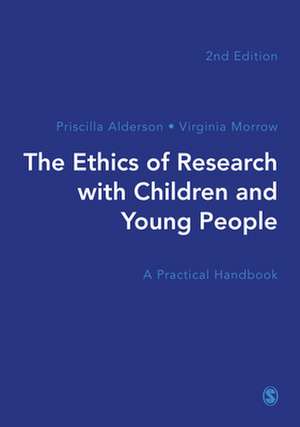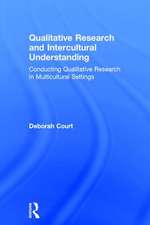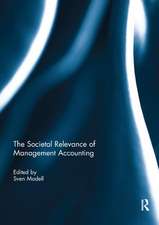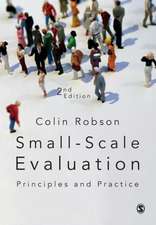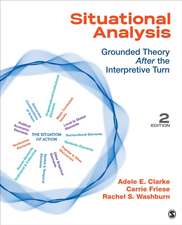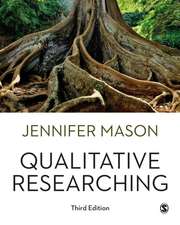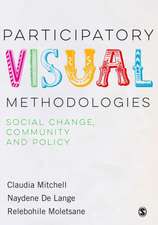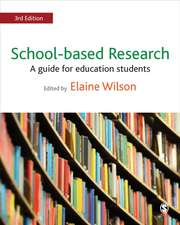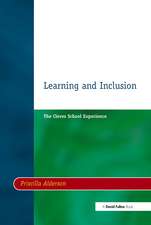The Ethics of Research with Children and Young People: A Practical Handbook
Autor Priscilla Alderson, Virginia Morrowen Limba Engleză Hardback – 2 sep 2020
• A showcase of the best practice on a range of topics including data protection
• Practical guidance for responding to recent global changes in policy and practice in ethics and law
• Discussion of the challenges and opportunities of digital research with children
The updated second edition continues to provide an excellent resource for those exploring the old, current and new consensuses on the ethics of researching with children.
| Toate formatele și edițiile | Preț | Express |
|---|---|---|
| Paperback (1) | 341.80 lei 22-36 zile | +23.18 lei 6-12 zile |
| SAGE Publications – 23 aug 2020 | 341.80 lei 22-36 zile | +23.18 lei 6-12 zile |
| Hardback (1) | 903.85 lei 43-57 zile | |
| SAGE Publications – 2 sep 2020 | 903.85 lei 43-57 zile |
Preț: 903.85 lei
Preț vechi: 1102.26 lei
-18% Nou
Puncte Express: 1356
Preț estimativ în valută:
172.95€ • 181.06$ • 143.11£
172.95€ • 181.06$ • 143.11£
Carte tipărită la comandă
Livrare economică 07-21 aprilie
Preluare comenzi: 021 569.72.76
Specificații
ISBN-13: 9781526477859
ISBN-10: 1526477858
Pagini: 240
Dimensiuni: 170 x 242 x 20 mm
Greutate: 0.5 kg
Ediția:Second Edition
Editura: SAGE Publications
Colecția Sage Publications Ltd
Locul publicării:London, United Kingdom
ISBN-10: 1526477858
Pagini: 240
Dimensiuni: 170 x 242 x 20 mm
Greutate: 0.5 kg
Ediția:Second Edition
Editura: SAGE Publications
Colecția Sage Publications Ltd
Locul publicării:London, United Kingdom
Recenzii
This clear and engaging book challenges and guides researchers and ethics panels alike to consider the child as central in all stages of a research cycle. Bravo!
Alderson and Morrow have, once again, produced the definitive guide to the ethics of working and researching with children. Authoritative, thoughtful, engaging and practical, it is filled with real-life examples from across the world which guide both new and experienced researchers towards the best possible practice in research with children and young people.
The new edition of this book addresses many questions that have arisen in research with children in recent years. It makes clear that ethical maxims are not to be understood as a limitation, but rather as a help for researchers to be aware of their own uncertainties and to be encouraged to question and reflect. The authors understand social research as an open process in which children always are actors, as fellow researchers or researchers in their own cause.
Alderson and Morrow have, once again, produced the definitive guide to the ethics of working and researching with children. Authoritative, thoughtful, engaging and practical, it is filled with real-life examples from across the world which guide both new and experienced researchers towards the best possible practice in research with children and young people.
The new edition of this book addresses many questions that have arisen in research with children in recent years. It makes clear that ethical maxims are not to be understood as a limitation, but rather as a help for researchers to be aware of their own uncertainties and to be encouraged to question and reflect. The authors understand social research as an open process in which children always are actors, as fellow researchers or researchers in their own cause.
Cuprins
Introduction: Why ethics matters
Part I: The planning stages
Chapter 1: Planning the research: Purpose and methods
Chapter 2: Assessing harms and benefits
Chapter 3: Respect for rights: Privacy and confidentiality
Chapter 4: Designing research: Selection and participation
Chapter 5: Money matters: Contracts, funding research, and paying participants
Chapter 6: Reviewing aims and methods: Ethics guidance and committees
Part II: The data collecting stage
Chapter 7: Information
Chapter 8: Consent
Part III: The writing, reporting and follow up stages
Chapter 9: Disseminating and implementing the findings
Chapter 10: The impact on children and young people
Part I: The planning stages
Chapter 1: Planning the research: Purpose and methods
Chapter 2: Assessing harms and benefits
Chapter 3: Respect for rights: Privacy and confidentiality
Chapter 4: Designing research: Selection and participation
Chapter 5: Money matters: Contracts, funding research, and paying participants
Chapter 6: Reviewing aims and methods: Ethics guidance and committees
Part II: The data collecting stage
Chapter 7: Information
Chapter 8: Consent
Part III: The writing, reporting and follow up stages
Chapter 9: Disseminating and implementing the findings
Chapter 10: The impact on children and young people
Notă biografică
Descriere
A practical guide to carrying out ethical research with children and young people, this practical handbook examines the ethical questions that arise at each stage of research, from first plans to dissemination and impact. Illustrated with case studies from international and inter-disciplinary research, it offers advice for addressing each ethical question, issue or uncertainty.
